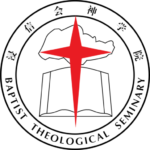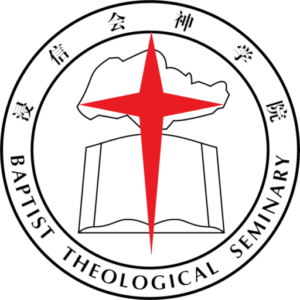From the President's Office
Equipped for Effective Ministry
May/June 2020 Issue
At one of the faculty retreats, we conducted an exercise among the lecturers as to what kind of theological education model BTS is or should be. Four different models were put forth for discussion: The classical model of Athens which sees theological education as character formation; the Confessional Geneva model where theological education is for knowing God; the Berlin model which trains for professional Christian vocation; and finally the Jerusalem model which focuses on the missional aspect of God’s redemptive work in the world. It was interesting to note that while the views were diverse and somewhat indicative of the subjects the lecturers taught, the one common thread that resonated with all was that theological education has to be an integrated whole in being faithful, formative and effective in preparing the worker to minister both to the church and to society. Having different components that together equip the worker of God towards this holistic outcome makes it necessary for a seminary to have lecturers in various disciplines.
We see examples of the various components of theological education models in Paul’s exhortation for his young protégé, Timothy, regarding the ministry.
A “Berlin” Commitment to Biblical Training
Do your best to present yourself to God as one approved, a worker who has no need to be ashamed, rightly handling the word of truth. 2 Tim 2:15
Central to theological education is the call to a thorough and serious study of God’s Word with respect both to how we think and how we live. Doctrinal biblical knowledge very much depends on the theological grounding of pastors and teachers of the Word. Wrong theology churns out erroneous teachings. This in turn corrupts a generation of pastors and leaders.
As the aging church turns its attention to nurturing and mentoring the next generation of Christian leaders, the Word of the living God incarnate and recorded in Scripture must not be neglected. We live in an era of both fast and easily accessible load of information. True and false news share the same platform. Coupled with a postmodern worldview where truth is perceived to be relative, the need to be biblically literate to sieve through the chaff and husks of information becomes crucial for the seminarian. In the spirit of the Berlin model, they need to know the Bible in both content and in praxis of how to relate it to their world.
A high view of Scripture also implies the need to study the Bible in the original languages. The purpose is not to produce “ivory tower” scholars but rather faithful pastors and teachers who can skilfully handle the Scriptures. Donald Carson of Trinity Evangelical Divinity School stated it this way: “The communication of what the Bible teaches us is our raison d’etre; all of us are committed to reading and rereading it, learning and doing what it says. The Bible provides the categories that help us mold and shape the various disciplines by which we serve the church.”1
An “Athens” Commitment to Holy Living
Have nothing to do with irreverent, silly myths. Rather train yourself for godliness; for while bodily training is of some value, godliness is of value in every way, as it holds promise for the present life and also for the life to come. 1 Tim 4:7-8
When the Christian vocation is seen as a profession, the set-apart ministry becomes a career rather than a calling. The former focuses on competence while the latter prioritises character. The uniqueness of the Christian ministry is in how the message validates the messenger. As such, it aims at the formation of one’s inner life where Christ is formed. The emphasis of the Athens model on holiness and personal formation is as such necessary for the consistency and authenticity of Christian witness.
A “Jerusalem” Commitment to Ministry and Mission
That is why we labor and strive, because we have put our hope in the living God, who is the Savior of all people, and especially of those who believe. 1 Tim 4:10
Until I come, devote yourself to the public reading of Scripture, to preaching and to teaching. 1 Tim 4:13
Seminary training was established not for degrees but for the ministry and mission of God. It was designed to train the church of God to be faithful messengers of the good news, effective in connecting with people it seeks to reach while ensuring the messengers themselves embody the message that they carry.
Jesus came to proclaim the kingdom of God. At the heart of this kingdom-building is the Great Commission and the Great Commandment, which is the mission of the Church. The Great Commission is given to the Church as the agent of the Kingdom of God to take the gospel to the ends of the world. It proclaims salvation in Jesus Christ whereby, as people turn their lives over back to their Creator, they will reclaim their humanness through the renewing work of the Holy Spirit as God intended during Creation. Theological education cannot be divorced from the church and the mission in which Christ has given.
While on-going considerations have centred on the best emphasis and model of training, the recent spread of Covid-19 brings us back to a basic stark reality. In the face of death, we are confronted with the reality of the fallen state of creation. This is the heart of the matter. In the words of our Lord Jesus Christ, “And this gospel of the kingdom will be preached in the whole world as a testimony to all nations, and then the end will come.” Matt 24:14
At different times in history, theological education models were essential responses to the needs of its day. Whether it be the Athens model emphasising the formation of full humanity by conforming to the image of God, the Berlin model for preparing professional Christian vocation as part of defending the reasonable Christian faith, or the missional nature of the Jerusalem model, theological education must train workers to be faithful to the Word, have Christlike character and be effective in ministry and in Christian responses to the challenges of its time and culture.
Dr Sim Swee Kee
Interim Co-President
1D.A. Caron, “Five Marks of an Effective Seminary: How to Evaluate Theological Education,” Christianity Today, (October 3, 1994), p. 80.

